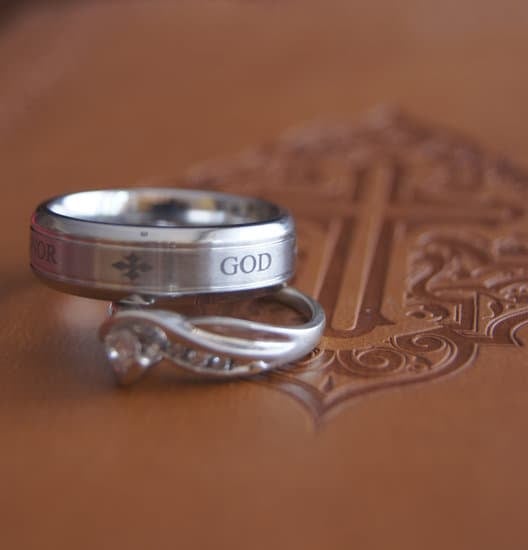Can the pope officiate a wedding in the Catholic Church? The role of the Pope within the Church is one of great significance and authority. This extends to the sacrament of marriage, with the question of whether the Pope can officiate weddings being a topic of interest and debate. In this article, we will explore the historical background, Canon Law, papal authority, contemporary cases, criticisms and controversies, as well as symbolism and traditions surrounding the Pope officiating weddings.
The Pope holds a central position within the Catholic Church as the Bishop of Rome and supreme pontiff. With his role as the Vicar of Christ on earth, questions about his involvement in various religious ceremonies naturally arise. Weddings are particularly significant events within Catholicism, and the potential for a Pope to officiate such ceremonies raises important theological and practical questions.
In delving into this complex issue, it is essential to consider historical precedents and examples, Canon Law regulations governing who can officiate weddings in the Catholic Church, as well as any contemporary cases that shed light on this matter. By examining these aspects comprehensively, we can gain a deeper understanding of the extent of papal authority when it comes to officiating weddings and appreciate both the symbolic significance and potential controversies associated with this practice.
Historical Background
The history of Popes officiating weddings dates back to ancient times within the Catholic Church. The role of the Pope in officiating weddings holds a significant place in the religious and cultural traditions of the faith. Throughout history, there have been notable examples of Popes who have conducted wedding ceremonies, showcasing the importance and authority that the position holds within the Church.
One such example is Pope Innocent III, who served as Pope from 1198 to 1216. He was known for his extensive influence in both spiritual and political matters during his reign, including presiding over royal weddings and bestowing blessings upon couples. Another prominent figure in history was Pope Alexander III, who reigned from 1159 to 1181 and played a vital role in solidifying church doctrines surrounding marriage and its sacramental nature.
These historical examples shed light on the longstanding tradition of Popes officiating weddings, demonstrating their significance as spiritual leaders within the Catholic Church. The presence of these examples also illustrates the deep-rooted connection between papal authority and matrimonial unions within the faith.
| Pope | Reign |
|---|---|
| Innocent III | 1198-1216 |
| Alexander III | 1159-1181 |
Canon Law
According to Canon Law in the Catholic Church, the officiating of weddings is a solemn and sacred responsibility. The rules and regulations surrounding who can officiate weddings are outlined in detail to ensure that the sacrament of marriage is conducted with reverence and respect. Here is a breakdown of the key points in Canon Law regarding the officiation of weddings:
- Ordained Ministers: Only ordained ministers, such as bishops, priests, or deacons, are permitted to officiate weddings within the Catholic Church. This requirement ensures that those performing the ceremony have undergone proper religious training and are authorized by the Church to administer sacraments.
- Canonical Form: In addition to having an ordained minister officiate the wedding, Canon Law also stipulates that the ceremony must adhere to canonical form. This includes specific requirements for how the vows are exchanged and witnessed, as well as obtaining any necessary permissions or dispensations if one or both parties are not baptized Catholics.
- Validity and Licitness: Another important aspect of Canon Law pertaining to wedding officiation is ensuring that the marriage is both valid and licit. This means that the union must meet all of the necessary criteria set forth by the Church in order to be considered legitimate in the eyes of Catholic doctrine.
The comprehensive guidelines laid out in Canon Law regarding who can officiate weddings reflect the importance placed on this sacred sacrament within the Catholic faith.
Papal Authority
When it comes to the authority of the Pope in officiating weddings, it is important to understand the role and significance of the Pope within the Catholic Church. The Pope is considered the highest authority in the Catholic Church, and his role as the Bishop of Rome carries great significance. Traditionally, Popes have not officiated weddings as their primary role is to lead and guide the entire Catholic Church, rather than perform specific sacraments such as marriage.
In terms of canonical law in the Catholic Church, it is generally understood that any baptized Catholic can officiate a wedding, as long as certain conditions are met. However, there are specific rules and regulations outlined in Canon Law regarding who can officiate weddings within the church. While it is not explicitly forbidden for a Pope to officiate a wedding, it is also not a common practice.
Despite this, there have been rare instances in history where a Pope has officiated weddings. One notable example is when Pope John Paul II presided over the marriage ceremony of several couples during his papacy.
These instances have sparked discussions about the extent of papal authority when it comes to performing such sacraments and have raised questions about whether or not a Pope should be involved in individual ceremonies. Ultimately, while it is within the realm of possibility for a Pope to officiate a wedding, it remains an uncommon occurrence within the Catholic Church.
Contemporary Cases
In recent years, there has been much interest and speculation surrounding the topic of whether the Pope can officiate a wedding. Despite historical precedent and canonical regulations, contemporary cases have shown that the Pope does indeed have the authority to officiate weddings under certain circumstances. These instances shed light on the evolving role of the Pope within the Catholic Church and his engagement with traditional sacraments like marriage.
Notable Occurrences
One of the most notable recent cases of the Pope officiating a wedding occurred in 2014 when Pope Francis married 20 couples at St. Peter’s Basilica in Vatican City. This act was significant not only for its rarity but also for its symbolism in demonstrating the Pope’s commitment to promoting and celebrating the sacred institution of marriage within the Church.
Special Dispensations
According to Canon Law, the Pope is typically not involved in performing individual marriages as it is usually delegated to local priests or bishops. However, there are provisions within Canon Law that allow for exceptions under certain circumstances. For instance, if a couple makes a special request to have their wedding officiated by the Pope due to personal or symbolic reasons, they can seek approval from their local bishop who may then forward their request to Rome for consideration.
Papal Flexibility
The ability of the Pope to officiate weddings showcases his unique position as both a spiritual leader and an influential figure within the Church. By personally presiding over marriage ceremonies, the Pope can emphasize the importance of marital commitment and unity within Catholicism, while also connecting with his followers on a deeply personal level.
While these contemporary cases may be rare, they serve as a reminder of how papal authority can be adapted to meet the spiritual needs and aspirations of Catholic communities around the world.
Criticisms and Controversies
In recent years, there has been a growing debate and controversy surrounding the issue of whether the Pope can officiate a wedding. While the role of the Pope in the Catholic Church carries significant authority and reverence, some critics have raised concerns and objections about the Pope’s involvement in officiating weddings.
Doctrinal Concerns
One of the primary criticisms surrounding the Pope officiating weddings is rooted in doctrinal concerns. Some theologians argue that according to traditional Catholic doctrine, the sacrament of marriage is primarily a domestic church affair, emphasizing the role of the couple as the ministers of the sacrament. Critics assert that by officiating weddings, especially high-profile ones, the Pope may inadvertently overshadow this fundamental aspect of Catholic beliefs.
Political Implications
Another point of contention revolves around the potential political implications of the Pope officiating weddings. In cases where political figures or celebrities are involved, critics argue that by presiding over such ceremonies, it can be interpreted as an endorsement or approval of individuals with controversial backgrounds or actions. This can lead to debates about separating religious authority from secular influences.
Conservative vs. Progressive Ideologies
Furthermore, criticisms about the Pope officiating weddings also stem from ideological differences within the Catholic Church. Traditionalists emphasize adherence to established norms and practices, often expressing reservations about any deviations or innovations. On the other hand, more progressive Catholics may welcome the idea of a Pope officiating weddings as a way to adapt to modern realities and engage with diverse communities within and outside of the church.
While these criticisms and controversies continue to generate discussions within both religious and secular contexts, it is evident that perceptions on whether or not the Pope can officiate a wedding remain varied and complex. Despite conflicting views, it is essential to consider these different perspectives when examining this evolving aspect of papal authority in relation to marriage ceremonies.
Symbolism and Traditions
In the Catholic faith, the role of the Pope is highly significant and symbolic. As the leader of the worldwide Catholic Church, the Pope holds immense spiritual authority and is considered to be the successor of Saint Peter, who was appointed by Jesus Christ as the head of his church. One important aspect of this role is the ability to officiate weddings, which holds great symbolic significance within the Catholic tradition.
The act of the Pope officiating a wedding symbolizes the unity and sanctity of marriage within the Catholic faith. By presiding over a wedding ceremony, the Pope not only bestows his blessing upon the union of two individuals but also reaffirms the importance of marriage as a sacred sacrament. The presence of the Pope in such a ceremony serves to emphasize the spiritual nature of marriage and highlights its place within traditional Catholic teachings.
In addition to symbolizing unity and sanctity, having the Pope officiate a wedding can also serve as a powerful expression of papal authority and leadership within the Catholic Church. It demonstrates that the highest-ranking figure in Catholicism values and actively participates in one of its most sacred rituals, further reinforcing his role as a spiritual guide and exemplar for Catholics around the world.
- Symbolizes unity and sanctity
- Symbolic act emphasizing spiritual nature
- Expression of papal authority
Conclusion
In conclusion, the question of whether the Pope can officiate a wedding is a complex and multifaceted issue that reflects the intricate nature of Catholic canon law and tradition. Throughout history, there have been instances of Popes officiating weddings, although they are relatively rare occurrences.
The significance of the Pope conducting a marriage ceremony goes beyond just the act itself; it carries profound symbolic weight within the Catholic faith and serves as a demonstration of unity and blessing for the couple.
While there are rules and regulations in place regarding who can officiate weddings within the Catholic Church, the extent of papal authority when it comes to conducting marriage ceremonies remains a topic of debate. Recent cases of the Pope presiding over weddings have sparked both support and criticism, with some lauding the symbolic gesture while others express concerns about blurring lines between religious and secular authority.
Ultimately, whether or not the Pope can officiate a wedding is a matter that goes beyond legal technicalities; it encapsulates traditions, symbolism, and theological significance within the Catholic faith. Regardless of specific rulings or historical precedents, the act carries deep spiritual meaning for those involved.
As such, while there may be debates about specifics and regulations, it’s clear that when the Pope does conduct a wedding ceremony, it holds great weight for those involved and for observers around the world.
Frequently Asked Questions
Are Catholics Allowed to Officiate a Wedding?
Catholics are allowed to officiate a wedding, provided they have been ordained as a deacon, priest, or bishop within the Catholic Church. Marriage is considered a sacrament within the Church, so it is important that the officiant is qualified to perform this role.
Can You Get Your Marriage Blessed by the Pope?
It is possible for a marriage to be blessed by the Pope, but this typically occurs in special circumstances and usually involves couples who have made significant contributions to the Church or society. The blessing from the Pope is considered a great honor and holds significant spiritual meaning for the couple.
Has Anyone Ever Been Married to the Pope?
While the Pope himself cannot marry due to his celibacy vow, there have been instances of individuals marrying someone who later became Pope. For example, before becoming Pope, Pius II was previously known as Aeneas Sylvius Piccolomini and fathered several illegitimate children before becoming Pope. However, once elected as Pope, he remained celibate as per Church tradition.

I have been involved in marriages for over 20 years helping couples and singles understand more about them.





